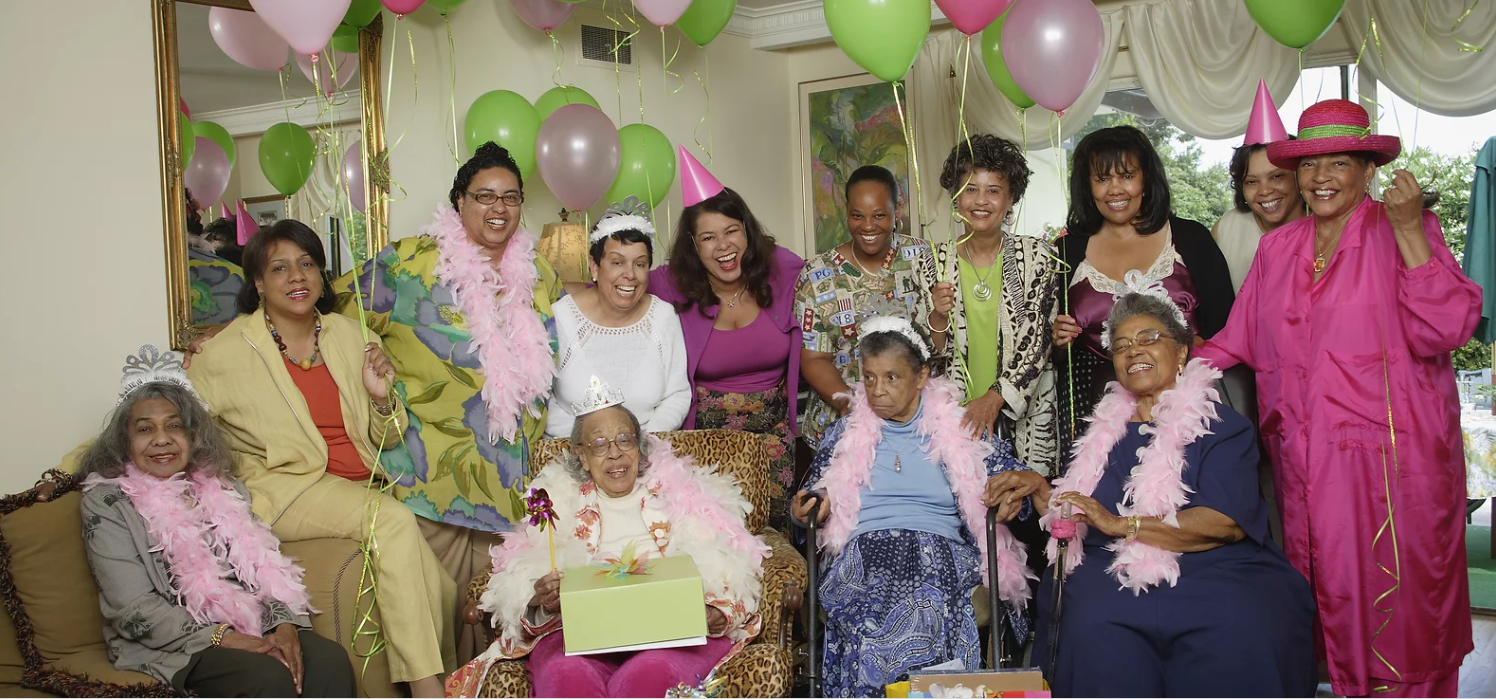December 1, 2021
Reprint from article at: https://www.payingforseniorcare.com/adult-day-care Adult Day Care Background Information Definitions: Adult Day Care vs. Adult Day Health Care Adult day care (ADC) provides frail seniors and persons with Alzheimer’s supervision and care in a structured setting during daytime hours. This allows their primary caregivers to work or take a break from their caregiving responsibilities. There are two primary types of adult day care programs. Adult social day care offers basic health services, supervision, meals, socialization, and activities. Adult day health care (ADHC) provides intensive health services for individuals who might otherwise need to live in a skilled nursing community. Some centers offer both types of care. And there are some centers that specialize in Alzheimer’s or dementia care, referred to as Alzheimer’s Day Care. Many centers provide transportation to and from the center at no cost or on a per ride basis. “Adult day care is the most economical approach to provide supervision and personal care for an elderly loved one on a daily basis.” Regulation of Adult Day Care All adult day care centers are required to have state licenses or are regulated to a degree to provide certain types of services. This is especially true of those centers that receive public funding, which most do. Most staff members receive background checks and many are certified social workers. In addition, many states regulate the staff-to-patient ratio and the minimum staff available at any time. In adult day care, there is on average one care worker for every six participants. State regulations vary with some states as low as a 1:4 ratio and others as high as 1:10. How Adult Day Care Works Once specific care requirements have been determined, the family will contact a center by phone for an initial conversation about matching needs with their services. Most families then proceed to visit the center twice, first without the individual in need of care and then again later with their loved one. At that point, if all parties feel comfortable with the center, it is common to conduct a week-long trial of their services before making any longer term contractual agreement with the center. Helpful Resources Get Help Qualifying for Medicaid Alternatives to Nursing Homes Find Financial Assistance for Care Find Affordable Elder Care Paying for Adult Day Care Medicare’s Benefits As most elderly Americans have Medicare, the question if Medicare will pay for adult day care is very common and should be addressed at the forefront of this discussion. Medicare does not pay for any form of adult day care. There is some confusion about this question, partly because Medicare is often mixed up with Medicaid. And partly because there are certain Medicare / Medicaid combination programs that cover adult day care. To be clear, a person with only Medicare insurance coverage will not receive adult day care as a benefit. Medicare’s Advantage Medicare Advantage (MA) plans, often called Medicare Part C, offer another way for seniors to receive their Medicare benefits. MA plans are available via private insurance companies and often provide additional benefits that are not covered by traditional Medicare. For instance, persons may receive dental and vision coverage, gym membership, and new in 2019, supplemental health care benefits, such as adult day care coverage, to prevent premature nursing home placements. Learn more here . Medicaid In all states, Medicaid pays for adult day care and / or adult day health care. This is especially true if an individual would otherwise require full-time nursing home care. Each state has several Home and Community Based Services (HCBS) Medicaid Waivers or 1915(c) Waivers that are offered as an alternative to nursing home care. These waivers help individuals remain living in their homes and communities by providing the necessary support services. Very often, this includes adult day care and transportation assistance to and from the community. Unfortunately, waivers are not entitlements and wait lists may exist. Adult day care is also covered under many Medicaid State Plans (regular Medicaid programs). State Plan Medicaid is an entitlement; so eligible families may use this as a funding source while wait listed for a HCBS Waiver. Typically, regular Medicaid programs have more restrictive financial criteria than Medicaid Waivers. Our state-by-state guide to Medicaid programs and adult day care details which programs cover adult day care and their eligibility requirements. You can also read more about Medicaid’s eligibility requirements or determine if you or your loved one will require assistance becoming eligible for Medicaid . Veterans’ Programs VHA Medical Benefits The VA will pay for adult day health care but not adult day care. Adult day health care is included in VHA Medical Benefits Package. However, one cannot simply enroll in a program. They first must be assessed and found to have a clinical need for the level of care and supervision provided in adult day health care centers. While the VA will provide assistance, they may not necessarily pay for 100% of the cost. Depending on the individual’s financial resources and level of need, a co-payment may be required. Veterans’ Pensions Specific pensions, such as Aid & Attendance , are intended to be used to provide care for ailing or disabled veterans. Both adult day care and adult day health care fall squarely within that definition and thus can be used in that capacity.ly within that definition and therefore can be used in that capacity. Veterans Directed Care As implied by the name, these VA Medical Center based programs give veterans considerable latitude on how they can spend the funds allocated towards their care. Putting funds towards adult day care is well within the regulations. Read more . Non-Medicaid State Assistance for Adult Day Care Many states have non-Medicaid assistance programs, sometimes referred to as nursing home diversion programs. These programs are intended to prevent or delay the placement of elderly state residents in nursing homes. To that end, these programs will pay for or help with the cost of daytime supervision in a group environment. This is especially true for individuals with Alzheimer’s or dementia. Our organization’s research found state-funded programs in thirty-nine states that can be used for adult day care. However, a well-researched (but not consumer-friendly and a bit outdated) report produced for the Office of the Assistant Secretary for Planning and Evaluation found just 24 states. It is strongly suggested that families undertaking research on adult day care review both our list below and the Secretary for Planning and Evaluation study . Reprint from article at: https://www.payingforseniorcare.com/adult-day-care




